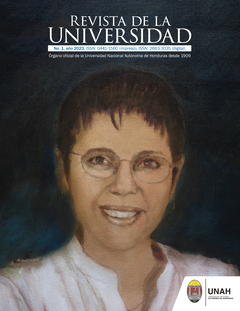The Influence of Fatalism on Decision-making in Nora Roberts Heart of the Sea
DOI:
https://doi.org/10.5377/ru.v1i1.17367Keywords:
decision-making, influence, beliefs, magical influence, FatalismAbstract
This research aims to explore the novel Heart of the Sea by analyzing the characters' beliefs in fate from the perspective of Richard Taylor's theory of fatalism. The researcher uses Richard Taylor's theory of fatalism as the main theoretical tool to analyze the issue of fatalism in the text. The study utilizes qualitative analysis to interpret the characters' actions and thoughts concerning fate. The researcher utilized a qualitative research approach. The researcher collected data through a close reading and analysis of the novel Heart of the Sea by Nora Roberts. The research reveals that the major character, Darcy Gallagher, strongly believes in fate, traditional beliefs, the magic of legends, and the significance of money. The wealthy businessman Trevor Magee, with Irish heritage, also falls for Darcy's charm but is unsure if he can find lasting love with her. The study concludes that the characters' strong belief in fate prevents them from taking control of their lives and moving towards their desires. The study concludes that the characters' belief in fatalism significantly affects their decision-making and actions. The village of Ardmore's magical influence and the forces of destiny can only be resisted for so long, leading to the characters' eventual surrender to fate. The research highlights the impact of fatalism on individuals' lives and the need to take control of one's life instead of surrendering to fate.
264
Downloads
Published
How to Cite
Issue
Section
License
Copyright (c) 2023 Revista de la Universidad

This work is licensed under a Creative Commons Attribution-NonCommercial-ShareAlike 4.0 International License.




